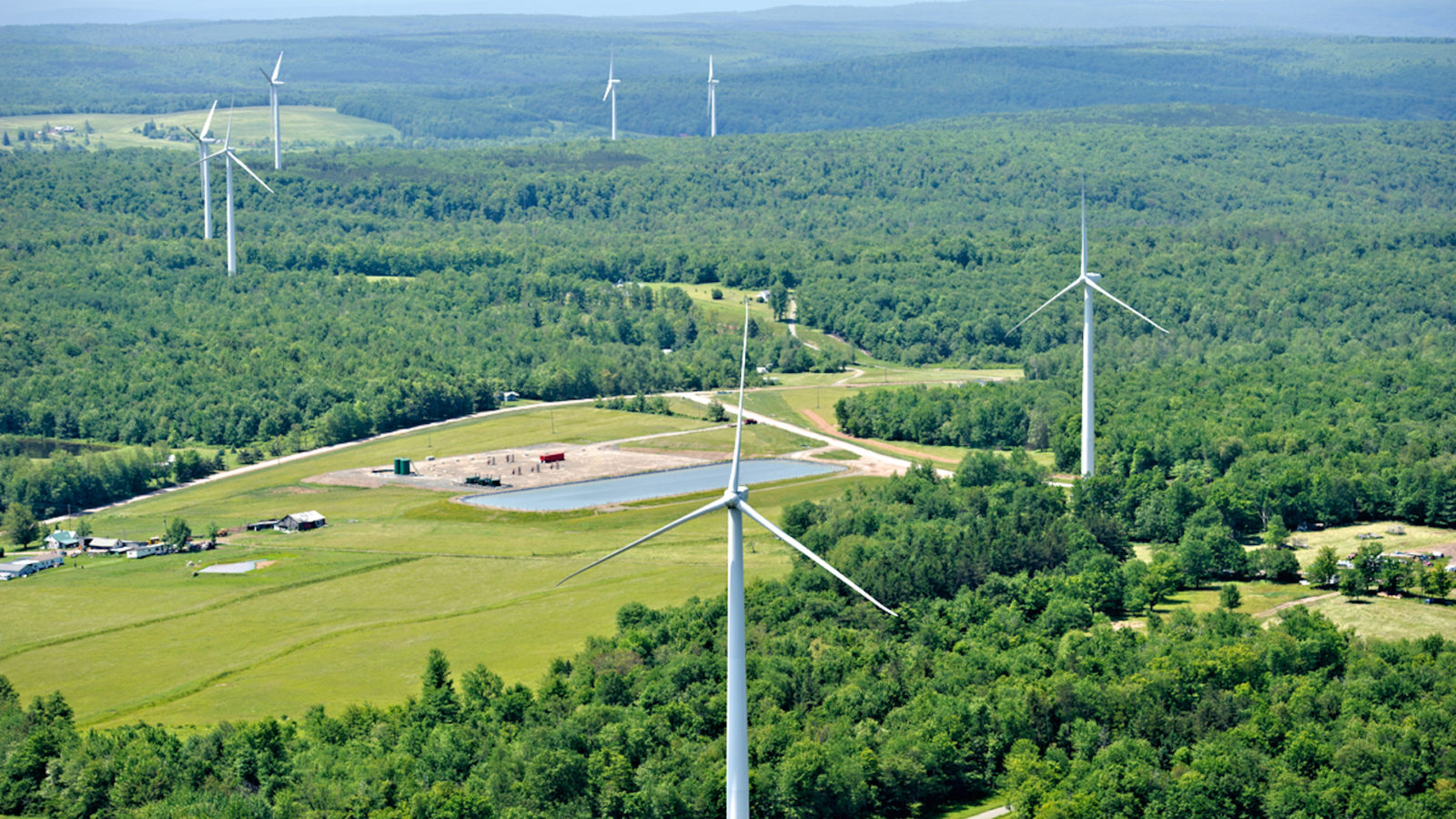As the second-largest producer of natural gas in the country and a state with large oil and gas industries, Pennsylvania has a long history of being dominated by fossil fuel interests. Many representatives in the legislative branch have close ties to, and benefit monetarily from, fossil fuels. Such ties have harbored much support for the continuation of fossil fuel production despite the negative environmental and societal effects like reduced air quality and sickness resulting from contaminated drinking water.
While strides have been made over the past few years to reduce greenhouse gas emissions in Pennsylvania, these efforts have been repeatedly thwarted by those who seek to continue to benefit from the industry. Most recently, Republicans are attempting to block Governor Wolf’s plan to join the Regional Greenhouse Gas Initiative (RGGI), a regional cap on electricity sector emissions in the Northeast. In fact, House Bill 2025, which would prevent the state from joining, just passed through the legislature.
Despite these obstacles, Governor Wolf and many other advocacy groups such as the Pennsylvania Environmental Council, which implements “collaborative solutions to environmental protection and restoration,” have stayed determined to reduce carbon emissions and the negative effects that stem from them. As a part of this plan, Governor Wolf has been fighting passionately to get the state to join RGGI and reduce emissions.
Gubernatorial Efforts to Join RGGI
In January 2019, Governor Wolf signed an executive order that set Pennsylvania’s first state-wide climate goals to reduce greenhouse gas emissions 80% below 2005 levels by 2050. He has been actively supporting programs like RGGI that set clear guidelines for Pennsylvania to reduce its carbon emissions, and therefore air pollution, to provide cleaner and safer communities for its residents.
Read more about cap-and-invest initiatives in the U.S. on our Regional Initiatives Page.
In the governor’s executive order, he directs the PA Department of Environmental Protection (DEP) to join RGGI by 2022. Part of the DEP’s responsibility is to estimate what effect joining RGGI would have on health, the economy, and the environment.
The DEP recently released an analysis demonstrating that Pennsylvania’s entrance into RGGI would result in a net increase of 27,000 clean energy jobs and add $1.9 billion to the state’s economy within 10 years. Joining RGGI would also yield drastic reductions in pollution, resulting in more than $6 billion worth of health benefits over the next decade, and cutting the number of asthma attacks for children aged 6-18 by more than 45,000.
Governor Wolf and many other environmental advocacy groups in PA have been working to convince legislators in the state’s House and Senate to allow Pennsylvania to join RGGI.
Joining RGGI would be a big move for Pennsylvania because of the state government’s deep and historic ties to the fossil fuel industry and the fact that it would become the first major coal-producing state to enter RGGI. Right now, Wyoming, West Virginia, Pennsylvania, Kentucky, and Illinois collectively account for over 70% of the total coal industry in the U.S. Pennsylvania currently has more electricity emissions than any other state participating in RGGI, so its involvement in this initiative that specifically places a cap on the electricity sector would have a significant impact on both the state and the program as a whole.
Pennsylvania’s Long History with Fossil Fuels
Pennsylvania has a vast fossil fuel infrastructure that, for decades, has built a state centered around natural gas and coal production. The state’s marketed natural gas production, primarily from the Marcellus Shale, reached 6.2 trillion cubic feet in 2018. About half of Pennsylvania households use natural gas as their primary home heating fuel, and its 49 underground gas storage sites — more than any other state — are key for meeting heating demands in the winter.
Pennsylvania is the third-largest coal-producing state in the nation as of 2017, and the second-largest coal exporter to foreign markets, bringing revenue and jobs to people all over the state. This history of the state’s economic and social reliance on the fossil fuel industry has proved an obstacle to any carbon emissions regulation as it is sometimes seen as a threat to businesses and labor groups that have depended on these industries.
Pennsylvania was the fourth-largest carbon dioxide emitter in 2016, with more than 37% of the Commonwealth’s energy-related emissions coming from the electricity sector, about 28% coming from the transportation sector, 21% from the industrial sector, and smaller amounts coming from the residential and commercial sectors.
RGGI states have reduced carbon emissions 47% since 2009, which outpaces other non-RGGI states’ reductions over the same time. Those reductions are largely due to the region’s shift from coal to natural gas, the increasing affordability and deployment of renewables, and large-scale energy efficiency investments, some of which is funded by RGGI. It will be important to see how RGGI’s market, price incentive, and revenue for other reduction efforts changes with the inclusion of more coal-reliant and emissions-intensive states like Virginia. With the help of advocates like Governor Wolf, Pennsylvania is making steady progress (despite much opposition) to joining RGGI.
Legislative Efforts to Stop PA from Joining RGGI
On the same day that Pennsylvania’s DEP released their analysis on how RGGI would benefit citizens, the State House passed House Bill 2025, in a 130-71 vote, to prevent Pennsylvania from joining RGGI and make it harder for any future governors to join similar regional programs. This bill bars the DEP from taking measures to control carbon dioxide emissions, such as participating in a regional greenhouse gas cap-and-trade program like RGGI, unless the action is authorized by the General Assembly. The DEP would also be required to hold public hearings and create a report explaining the cost of implementing an initiative like RGGI before submitting it to the legislature, according to the bill.
Currently, Republicans hold a majority in both the House and the Senate, and the Pennsylvania GOP has historically voted against RGGI and other environmental initiatives. If joining RGGI relies on a General Assembly vote, it will likely not pass.
This effort to stop the state from joining RGGI will soon advance to the Senate for consideration, but will likely be vetoed by the Governor if the bill makes it to his desk. Given that a similar bill (Senate Bill 950) is under consideration within the Senate and representatives like Senator Yaw believe that there should be a “top-down reboot of the RGGI idea,” the opposition to RGGI could very well progress to the Governor.
The pushback against RGGI among legislators is in part due to many representatives’ close ties to the fossil fuel industry. The oil and gas sector, in particular, has seen a steady increase in political spending in past years, more than doubling between 2006 and 2012. Last year, it was reported that $4,402,886 was given by the fossil fuel industry to current state Representatives and Senators in campaign contributions since 2006.
This same report showed that Senate President, Joseph Scarnati III (R), has accepted over $200,000 from fossil fuel industry interests during each of the last two election cycles. He has accepted a total of $563,321 since 2006 — the largest amount taken by any state Representative or Senator in Pennsylvania. This influence of the fossil fuel industry and Pennsylvania’s legislative branch must be addressed and made known to voters as they decide which representatives to support in this upcoming election.
Clean Energy Can Benefit Pennsylvanians
Taking money from fossil fuels has a clear impact on the policies that legislators support, especially when a transition to renewable energy sources such as solar, wind, and hydro can have massive positive impacts on Pennsylvanian residents.
In particular, there would be a drastic decrease in contaminated water that flows into Pennsylvania homes with a transition to clean energy, because solar and wind power use virtually no water to operate and thus do not pollute water supplies. This would have a huge positive impact on households/residents/communities given that currently, half of the state’s population (5.6 million people) drink from water systems that violate the Safe Drinking Water Act due to toxic waste from fossil fuels. Particularly given Pennsylvania’s recent and historic scares of contaminated drinking water containing dangerously high levels of methane, this is a crucial benefit from a transition away from fossil fuels.
Pennsylvanians have been disproportionately impacted by the fossil fuel industry’s disregard for human health and safety for years. In 2008, HBO released a documentary called Gasland that displayed how the levels of methane in drinking water sites across the nation were dangerously high and harmful; in Pennsylvania specifically, levels were so high that they could light it on fire. Increased ingestion of methane can cause suffocation, loss of consciousness, vomiting and more, and should be a major concern for Pennsylvania lawmakers.
The Pennsylvania Attorney General has taken steps to combat this contamination, announcing 15 criminal accounts against Cabot Oil and Gas for violating the state’s Clean Streams Law. The law is designed to protect the state’s freshwater resource and “regulate discharges of industrial waste” from companies like Cabot Oil and Gas who haphazardly proceeded with fossil fuel production despite its threat to the safety of residents nearby. This investigation is in the first stages of a long process to hold these fossil fuel companies accountable.
These are only a few of the ways Pennsylvanians would benefit from a cleaner and safer environment if the state chose to make efforts like joining the Regional Greenhouse Gas Initiative (RGGI) that promotes clean energy and reduced carbon emissions. Efforts, however, must go much further than joining RGGI, in ensuring deeper decarbonization across sectors and incentives for clean energy generation, which ensures protections for fossil fuel workers and the economic wellbeing of residents, while safeguarding public and environmental health.
How Citizens Can Help
Citizens in Pennsylvania can aid in the process of shifting the state towards a cleaner and greener future. Voting for progressive representatives who support environmental initiatives in the upcoming November election is very important. The entire House and 25 seats in the state Senate are up for election this year, meaning that citizens have a real opportunity to shift away from the current Republican majority.
Representative Mary Jo Daley is a Democratic member of the Pennsylvania House representing the 148th legislative district in Montgomery County, PA. She has done work with the Climate Caucus, which is solely focused on “climate change and its environmental and economic impact in the Commonwealth,” and also serves on the Environmental Resources and Energy Committee which convenes to discuss, vote on, and pass bills covering various environmental subjects in Pennsylvania.
Representative Daley commented that citizens in Pennsylvania can get involved in this process by “being in touch with their elected officials, voting, and understanding processes like how a bill becomes a law.”
With its long-standing infrastructure of fossil fuel production, joining the Regional Greenhouse Gas Initiative would be a big but necessary change for the state. Pennsylvania is in a unique position because it has faced a considerable amount of pushback from representatives due to its reliance on fossil fuel production.
However, many representatives and environmental advocacy groups are optimistic that with the action from citizens during this upcoming November election, Pennsylvania will shift towards a clean energy mindset and join RGGI and pursue other, synergistic climate and environmental justice initiatives within the next few years.









